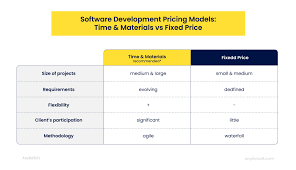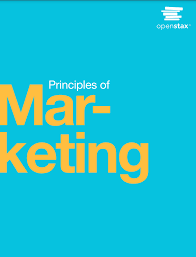A website is an essential tool for businesses and individuals alike in today’s digital age. It serves as a virtual storefront, providing customers with a platform to access information, products, and services from anywhere in the world. A website is a powerful marketing tool that can help businesses reach a wider audience and increase their revenue.
The importance of having a website cannot be overstated. In the past, businesses relied on traditional marketing methods such as print ads, billboards, and radio commercials to reach their target audience. However, with the rise of the internet and social media platforms, businesses have had to adapt to stay relevant.
A website allows businesses to showcase their products or services 24/7 without any geographic limitations. Customers can access information about your business at any time from anywhere in the world. This means that you can reach potential customers who may not have heard of your business through traditional marketing methods.
In addition to providing information about your business, a website also serves as a platform for communication with your customers. You can use your website to provide customer support, answer frequently asked questions, and even receive feedback from customers.
A well-designed website can also improve your search engine rankings. Search engines like Google use complex algorithms to determine which websites appear at the top of search results pages. Websites that are optimized for search engines are more likely to appear at the top of search results pages, which can lead to increased traffic and revenue.
Creating a website may seem like a daunting task for those who are not tech-savvy. However, there are now many tools available that make it easy for anyone to create a professional-looking website without any coding knowledge.
In conclusion, having a website is essential for businesses and individuals who want to stay relevant in today’s digital age. A well-designed website can help you reach new customers, improve your search engine rankings, and provide customer support. With so many tools available now that make it easy to create a website, there’s no reason not to have one.
5 Benefits of Having a Website: Boosting Visibility, Saving Costs, Easy Updates, Building Credibility, and 24/7 Availability
5 Critical Website Issues: Usability, Interactivity, Security, Speed and Content
Increased visibility
In today’s digital age, having a website is crucial for businesses that want to increase their visibility and reach a wider audience. One of the main benefits of having a website is increased visibility. With a website, you have the opportunity to showcase your products or services to a global audience.
Unlike traditional marketing methods such as print ads or billboards, a website can be accessed by anyone with an internet connection from anywhere in the world. This means that you can reach potential customers who may not have heard of your business through traditional marketing methods.
A well-designed website can also improve your search engine rankings, making it easier for people to find your business online. Search engines like Google use complex algorithms to determine which websites appear at the top of search results pages. Websites that are optimized for search engines are more likely to appear at the top of search results pages, which can lead to increased traffic and revenue.
In addition to increasing your visibility, a website also provides you with the opportunity to build your brand and establish credibility with potential customers. A professional-looking website can help you stand out from competitors and show potential customers that you take your business seriously.
In conclusion, having a website is essential for businesses that want to increase their visibility and reach a wider audience. With so many tools available now that make it easy to create a professional-looking website, there’s no reason not to have one. A well-designed website can help you reach new customers, improve your search engine rankings, and establish credibility with potential customers.
Cost effective
One of the biggest advantages of having a website is that it is a cost-effective way to promote your business. Compared to traditional forms of advertising such as television or radio campaigns, having a website is much cheaper.
Creating and maintaining a website requires an initial investment, but once it’s up and running, the ongoing costs are minimal. You don’t have to worry about paying for airtime or print ads, which can be very expensive. Instead, you can use your website to reach potential customers at any time without incurring additional costs.
Another advantage of having a website is that you can easily track the effectiveness of your marketing efforts. With tools like Google Analytics, you can measure how many people are visiting your site, where they are coming from, and which pages they are viewing. This information can help you make informed decisions about how to improve your website and reach more customers.
In addition to being cost-effective, having a website also allows you to target specific audiences. By using search engine optimization (SEO) techniques, you can ensure that your website appears at the top of search results pages when people search for keywords related to your business. This means that you are more likely to attract visitors who are interested in what you have to offer.
Overall, having a website is a smart investment for businesses looking to promote themselves in a cost-effective way. It allows you to reach potential customers at any time without incurring additional costs and provides valuable insights into the effectiveness of your marketing efforts.
Easy to update
One of the biggest advantages of having a website is that it’s easy to update. Unlike traditional marketing methods like print ads, billboards, or radio commercials, updating information on your website is quick and effortless. You don’t have to pay for expensive design changes every time you want to make a change.
With a website, you can easily add new products or services, update prices, change business hours, or even add a blog post. This means that your customers will always have access to the most up-to-date information about your business.
Updating your website regularly also has SEO benefits. Search engines like Google favor websites that are updated frequently with fresh content. This means that by updating your website regularly, you can improve your search engine rankings and attract more traffic to your site.
In addition to being easy to update, websites also provide valuable insights into customer behavior. With tools like Google Analytics, you can track how many people are visiting your site, which pages they’re visiting most frequently, and how long they’re staying on each page. This data can help you make informed decisions about how to improve your website and better serve your customers.
In conclusion, having a website is not only important for establishing an online presence but also for its ease of use and ability to be updated quickly and easily. By keeping your website up-to-date with fresh content and tracking customer behavior through analytics tools, you can improve your search engine rankings and better serve your customers’ needs.
Builds credibility
In today’s digital age, having a professional-looking website is crucial for building credibility with potential customers. A well-designed website shows that you are serious about your business and have invested time and resources into creating a quality site for your customers to use.
A professional-looking website can help build trust with potential customers. When someone visits your website, they are looking for information about your business and what you have to offer. A well-designed website can help convey the message that you are a reputable business that takes pride in providing quality products or services.
A professional-looking website can also help differentiate your business from competitors. If your website looks outdated or unprofessional, potential customers may assume that your business is not up-to-date with current trends or technologies. A well-designed website can help set you apart from competitors and make a positive first impression on potential customers.
In addition to building credibility with potential customers, a professional-looking website can also improve search engine rankings. Search engines like Google prioritize websites that are well-designed and user-friendly, which means that a professional-looking website can help improve your visibility online.
In conclusion, having a professional-looking website is essential for building credibility with potential customers. It shows that you are serious about your business and have invested in creating a quality site for them to use. A well-designed website can also help differentiate your business from competitors and improve search engine rankings, making it an important tool for any business looking to succeed in today’s digital age.
24/7 availability
One of the major pros of having a website is its 24/7 availability. Unlike traditional brick and mortar stores, your website is accessible to customers at any time of the day or night. This means that potential customers can access information about your business whenever they need it, without having to wait for opening hours or rely on staff availability.
This is especially important in today’s fast-paced world where people expect instant gratification. Customers want to be able to access information quickly and easily, and having a website that is available 24/7 allows them to do just that.
Moreover, having a website that is available all the time can increase your customer base. It means that you can reach people who may not be able to visit your physical store during regular business hours. This includes people who work odd hours or live in different time zones.
By providing customers with 24/7 access to information about your business, you are also increasing their trust in your brand. They know that they can rely on you for information whenever they need it, which can lead to increased loyalty and repeat business.
In conclusion, the 24/7 availability of a website is a significant pro for businesses. It allows customers to access information about your business whenever they need it, which can lead to increased customer base, loyalty and trust in your brand. With so many benefits, having a website that’s available all the time is crucial for businesses looking to stay competitive in today’s digital age.
Poor Usability
One of the biggest cons of a website is poor usability. Websites that are difficult to navigate can be frustrating for users, leading to a poor user experience and potentially driving them away from your site. Poor usability can manifest in many ways, including confusing menus, cluttered pages, and confusing content organization.
Confusing menus are one of the most common issues with poorly designed websites. Users should be able to easily find what they’re looking for without having to spend too much time searching. If menus are not clearly labeled or organized in a logical manner, users may become frustrated and leave your site.
Cluttered pages can also contribute to poor usability. Pages that are overloaded with information or ads can be overwhelming for users and make it difficult for them to find what they’re looking for. It’s important to strike a balance between providing enough information and keeping pages clean and easy to navigate.
Finally, confusing content organization can also contribute to poor usability. Users should be able to easily find the information they need without having to search through multiple pages or sections of your site. A clear hierarchy of information is important so that users can quickly locate what they need.
In conclusion, poor usability is a major con of a website. It’s important to ensure that your site is easy to navigate with clear menus, clean pages, and logical content organization. By prioritizing usability, you can create a positive user experience that will keep visitors coming back to your site time and time again.
Lack of Interactivity
One of the biggest cons of websites is the lack of interactivity. Many websites are static and don’t offer any interactive features that could make them more engaging for users. This can lead to a lack of interest from visitors and ultimately result in a lower conversion rate.
Interactive features such as quizzes, polls, and games can make a website more engaging and keep visitors on the site longer. They also provide an opportunity for businesses to collect valuable data about their customers, which can be used to improve marketing efforts.
Unfortunately, many businesses overlook the importance of interactivity when designing their websites. They may focus too much on aesthetics or functionality and forget about the user experience. This can result in a website that looks great but fails to engage visitors.
To overcome this con, businesses should consider adding interactive features to their websites. This could include anything from simple polls to complex games or interactive maps. By providing visitors with an engaging experience, businesses can increase the likelihood that they will stay on the site longer and ultimately convert into customers.
In conclusion, lack of interactivity is a significant con of websites that can negatively impact user engagement and conversion rates. Businesses should prioritize adding interactive features to their sites to improve the user experience and drive conversions.
Security Risks
Security is a major concern when it comes to websites. Without proper security measures, websites can be vulnerable to malicious attacks from hackers or viruses. These attacks can compromise sensitive information such as customer data, financial information, and intellectual property.
Hackers and viruses can exploit vulnerabilities in a website’s code or software to gain unauthorized access to sensitive information. They can also use a website as a platform for launching attacks on other websites or networks.
To prevent these security risks, it is important to implement proper security measures such as using strong passwords, regularly updating software and plugins, and installing firewalls and antivirus software. It is also important to educate employees about the importance of security and how to identify potential threats such as phishing emails.
In addition, websites should have a backup system in place in case of a security breach. This will help minimize the damage caused by an attack and allow the website to be restored quickly.
Overall, the security risks associated with websites are significant but can be mitigated with proper precautions. It is important for businesses and individuals alike to take these risks seriously and implement appropriate security measures to protect themselves and their customers from potential harm.
Slow Load Times
Slow load times are one of the most frustrating cons of a website. When a website takes too long to load, it can lead to visitors leaving the site before they even have a chance to see its contents. This not only leads to a poor user experience but also negatively impacts the website’s search engine rankings.
There are several reasons why a website may have slow load times. One common reason is that the website is not optimized for speed. This means that the website’s code and images are not optimized, resulting in longer load times.
Another reason for slow load times may be due to the web hosting service used by the website. If the hosting service is not able to handle the amount of traffic on the site, it can lead to slower load times.
Slow load times can have a significant impact on a business’s bottom line. Visitors who leave a site due to slow load times are unlikely to return, leading to lost revenue and potential customers.
To prevent slow load times from negatively impacting your website, it’s important to optimize your site for speed. This can include optimizing images and code, using a content delivery network (CDN), and choosing a reliable web hosting service.
In conclusion, slow load times are one of the cons of a website that can negatively impact user experience and search engine rankings. By taking steps to optimize your site for speed, you can ensure that visitors have a positive experience on your site and avoid losing potential customers due to slow load times.
Outdated Content
Outdated content is one of the most significant cons of a website. If a website is not regularly updated, it can become stale and irrelevant to users. This can lead to a decrease in traffic and engagement, which can ultimately hurt the website’s overall success.
When a website contains outdated content, it can mislead users and provide them with inaccurate information. This can be particularly problematic for businesses that rely on their websites to attract customers. If users discover that the information on a website is outdated or incorrect, they may lose trust in the business and seek out other options.
Moreover, search engines like Google prioritize websites that have fresh and relevant content. Websites that are not regularly updated will likely rank lower in search engine results pages, making it harder for users to find them.
To avoid the cons of outdated content, website owners should make sure to update their websites regularly. This includes updating information about products or services, publishing new blog posts or articles, and refreshing images or graphics.
In conclusion, outdated content is a significant con of a website that can negatively impact its success. By updating their websites regularly and providing fresh and relevant content for users, website owners can ensure that their websites remain engaging and useful for visitors.




